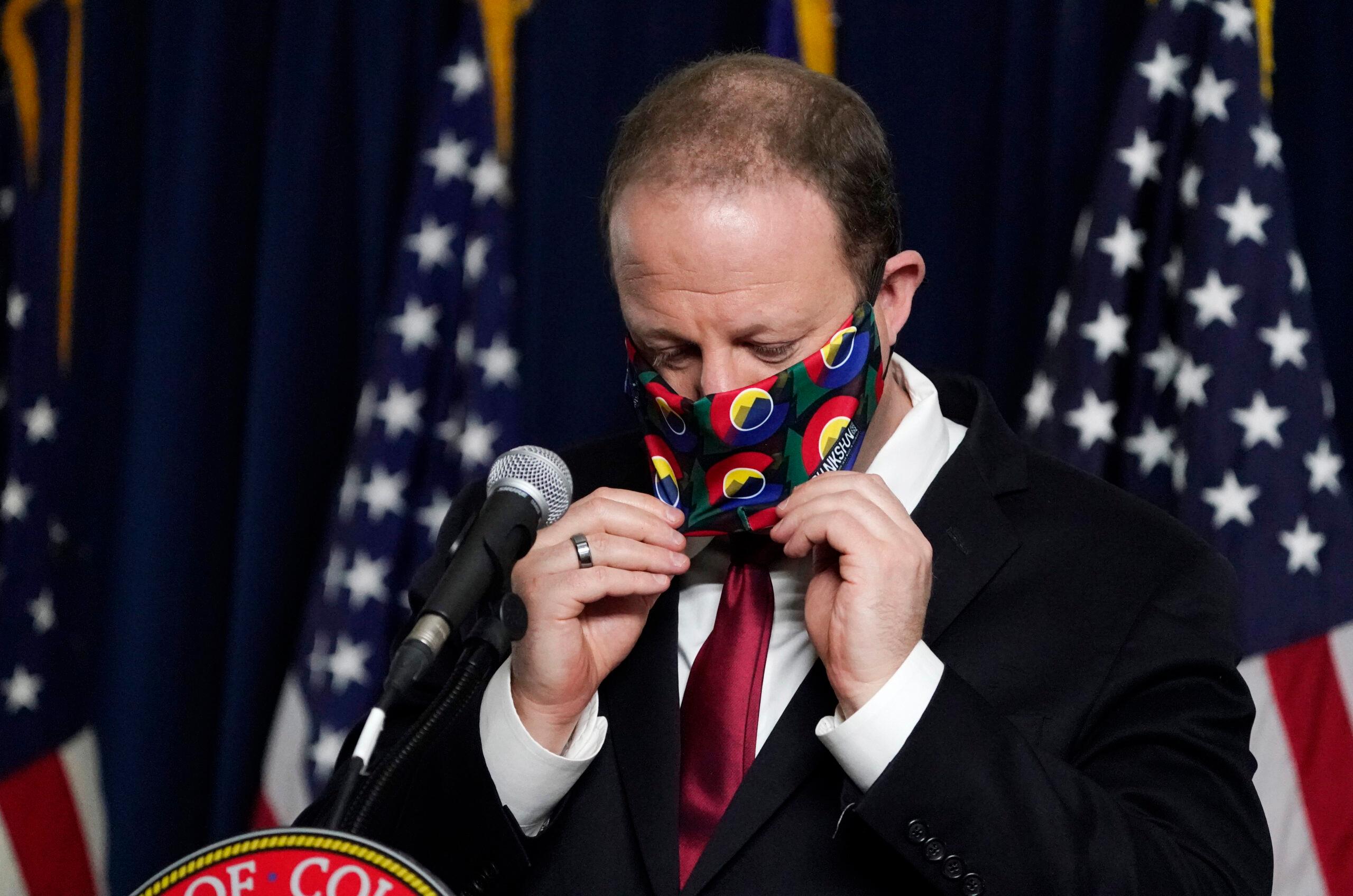
The pandemic may not be over, but Colorado’s state of health emergency has come to an end.
Gov. Jared Polis on Thursday ended the remaining health emergency executive orders that have guided the state since the early days of the COVID-19 pandemic.
He also rescinded all remaining executive orders related to COVID-19 and issued in the pandemic, and signed a new “Recovery Executive Order” focused on returning the state to normal. That order repackages several elements from the emergency orders he began issuing in March of 2020, but his intent Thursday was clear: Even as he retains some authority through executive actions, he is ready to move on from COVID-19.
“We've experienced pain and loss but through it all, Coloradans did their part, made good choices by wearing masks, socially distancing, and sacrificing moments with loved ones, and we succeeded in having one of the lowest COVID fatality rates in the nation,” Polis said in a statement released by his office. “We have been supportive of empowering individuals to make the best decisions for themselves and their families and been guided by science every step of the way over this rocky ground.”
Colorado’s pandemic-long death rate of 121 per 100,000 residents is tied for 9th best in the nation, according to state and local health department data analyzed by the New York Times. It is a marked improvement from the early days of the pandemic when the state had one of the worst rates among states west of the Mississippi for a viral disease in which transmission is at least partly dependent upon population density.
But the improved performance also masks some rough spots, including having the highest death rate in the nation for nursing home residents when the third wave of the virus hit the state in late fall and early winter.
Polis issued 393 executive orders related to COVID-19 during the crisis, covering everything from rules governing manicurists to crisis standards of care in the event the state ran out of hospital capacity and had to make hard choices about which patients to save.
The orders gave him broad authority to override Colorado’s traditional local control in order to protect citizens from the coronavirus. He also had wide latitude to distribute federal funds as they arrived rather than waiting for the legislature to exercise its budget-making powers.
The statement from Polis’s office said the availability and acceptance of vaccines in the state were allowing him to turn his focus to recovery of the economy and getting Coloradans back to normal. Just more than 70 percent of Colorado adults have now had at least one dose of a COVID-19 vaccine, but children under 12 remain ineligible for inoculation with a return to school looming.
Focus is now on getting back to normal
Still, Polis sounded an upbeat tone with a cautious edge.
“While we have reached a milestone with over 70% of our state receiving the safe and effective COVID-19 vaccine, we must remain vigilant.,” Polis said. “Today, thanks to the decisions and resilience of Coloradans, our economy is roaring back and we are taking the next bold step to ensure Colorado is building back stronger than before.”
Polis also released a video message to Coloradans.
Republicans have been pushing Polis to end the declared emergency and move the state toward normalcy. In a statement of their own, they said they were happy the day had finally come.
“This is something we’ve been advocating for on behalf of our constituents for some time now,” said Sen. Paul Lundeen (R-Monument), Whip for the Senate Republicans. “Every meeting we’ve had with the Governor has been punctuated with an inquiry as to when he would finally lift the order and declare this pandemic over in the State of Colorado. We’re glad to see he finally has agreed to turn this dark page in our history.”
What the new executive order means for Colorado
The new 12-page executive order issued for the state's recovery directs agencies to make it easier for people to distribute and administer vaccine, but also repackages elements of prior executive orders related to the pandemic, allowing Polis to retain considerable authority by waiving some rules to expand the state's healthcare workforce, maintaining activation of the National Guard for use as needed, and keeping the ability to move money "for response activities related to COVID-19."
As of Wednesday afternoon, Colorado had recorded 560,419 cases of COVID-19 with 6,824 deaths among those cases. There were 342 patients hospitalized with COVID-19 Wednesday, part of 31,931 Coloradans or visitors who had to spend time in a hospital here with the illness since March of 2020.
Experts continue to raise concerns about the spread of the so-called "Delta" variant, which is estimated to be about twice as transmissible as the original coronavirus. But it is largely impacting the unvaccinated population, and authorities hope that its spread will serve to persuade the hesitant to get a shot and dramatically reduce their chances of catching COVID-19 or experiencing a severe case.









